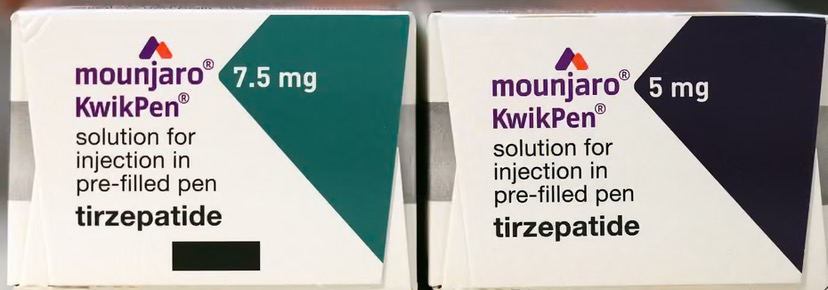People using the weight-loss injection Mounjaro are being urged not to bulk buy or turn to unlicensed sellers after its manufacturer, Eli Lilly, confirmed prices in the UK will rise sharply this autumn.
From September, the cost of Mounjaro is set to increase by up to 170%, although the NHS will be protected from the rise. Since only a small number of patients are eligible for NHS prescriptions, most people buy the drug privately at around £200 a month — a figure expected to soar.
Henry Gregg, chief executive of the National Pharmacy Association (NPA), said the rising costs had created understandable anxiety but warned against unsafe practices.
“Bulk ordering can affect supply and put patient safety at risk. We’d also urge patients not to buy from unlicensed sellers, who may be offering counterfeit or unsafe medication,” he said. “Instead, people should speak to their prescriber for safe advice and support.”
Some patients have already begun stockpiling.
The looming rise has prompted growing interest in Wegovy, a rival weight-loss drug made by Novo Nordisk, which has no plans to increase prices in the UK. Some online pharmacies have already reported a surge in patients switching.
Graham Thoms, chief executive of Pharmadoctor, said Mounjaro currently accounts for 98% of weight-loss treatments across its pharmacy network. He confirmed demand for guidance on switching to Wegovy had spiked.
However, he stressed that stockpiling was not clinically appropriate because patients need monthly reviews to check progress and receive support. Thoms also suggested the price increase might be softened by a rebate scheme allowing pharmacies to claim back discounts if they pass savings on to patients.
Meanwhile, Chemist4U warned against the growing TikTok trend of microdosing Mounjaro, saying it could undermine treatment and increase health risks. The company said it saw a 5,000% surge in Mounjaro prescriptions and a 1,500% increase in Wegovy requests immediately after the price rise was announced.
But pharmacists remain worried about patients who cannot easily switch drugs. Sukhi Basra, a London pharmacist and vice-chair of the NPA, said many were mid-treatment and had already seen major physical and emotional benefits.
“Some of my patients are already struggling with the current cost. For them, this sudden rise will be very difficult to manage,” she said. “They’ve benefited hugely from the medication, but don’t fall within the NHS funding criteria.”



